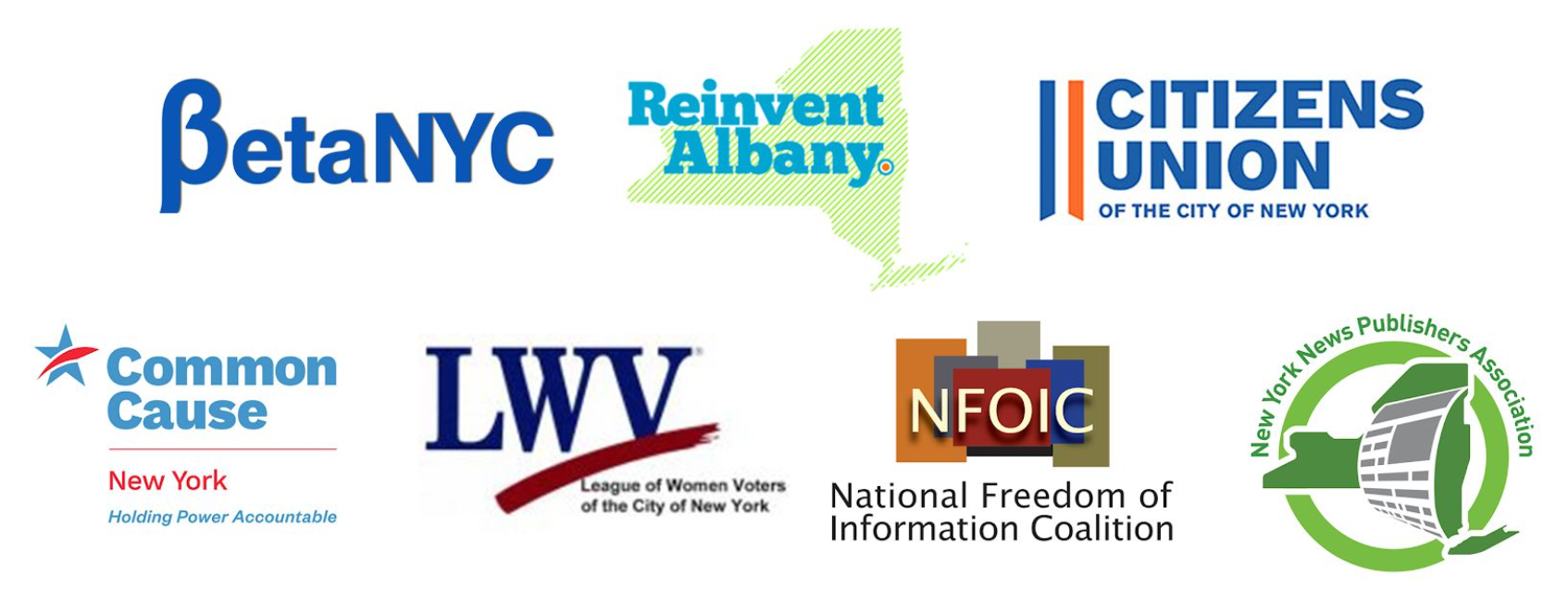Watchdogs Urge Mayor’s Office to Use Messaging Apps That Comply with Archive and FOI Law
Watchdogs Call on City Hall to Use Messaging Apps
That Fully Comply with FOIL and Archiving Laws
Signal App Allows for Automatic Deletion of Messages,
Undermines Public Trust in Government
Seven watchdog groups sent a letter to Mayor de Blasio on Friday asking that he require City staff to use messaging apps that comply with FOIL and archiving laws. The letter was in response to recent reports that City staff have been using the messaging application Signal to conduct public business. Messages on apps like Signal allow for automatic deletion of messages, meaning that public records can be lost. Signal messages also cannot be easily accessed by a FOIL officer, as the programs are designed so that messages can only be viewed by the owner of the phone. The groups asked that the Mayor ban the use of such apps for public business and consider using a service that allows for the instant archiving of messages.
============
Honorable Bill de Blasio VIA EMAIL
Mayor, City Hall
New York, New York 10007
March 6, 2020
Dear Mayor Bill de Blasio,
We write to ask that your office require city employees, including yourself, use electronic communications that fully comply with City and State Freedom of Information Law (FOIL) and archiving requirements when conducting city business. We believe that messaging apps like Signal, Telegram and Confide do not preserve public records that can be disclosed under the Freedom of Information Law. To comply with FOIL, the city’s policy for archiving messages should be made uniform with its policy for archiving emails.
A December 16th, 2019 article in the Wall Street Journal reported that City Hall staffers are using the messaging app Signal to conduct city business. Some messages, which were viewed by the Journal, were used to determine whether or not the Mayor would visit a Queens neighborhood flooded by sewage.
Signal is designed so that messages can only be viewed by the owner of the phone. iMessage, which comes with iPhones, allows for messages to be scheduled to expire. These types of applications make it difficult to preserve and release records that are subject to disclosure under FOIL, whereas city emails are stored on city servers controlled by career officials who work with archivists and FOIL officers. FOIL officers and city archivists do not have access to public records created using Signal or many other apps, which means those records are effectively outside the reach of FOIL.
To comply with FOIL, the city’s policy for archiving messages should be made uniform with its policy for archiving emails. Under category 22 of the NYC Supplemental Records Retention and Disposition Schedule, city policymakers must retain all emails “created and received by senior officials in the process of conducting business on behalf of New York City” until the termination of the public employee’s service. This includes “calendars, appointments, tasks and associated attachments.” Bringing policy for messages in line with emails would help ensure the Law is not violated. As the aforementioned messaging apps do not provide for archiving, we ask your administration not to use these apps.
Any approved electronic communication tools should provide for automatic archiving and review by a FOIL officer – which NYC government emails already do. Additionally, City Hall should have a routine protocol for archiving and reviewing city electronic communications, and consider using a third-party service to facilitate this process. Ideally, such a service would:
- Allow for every message related to public business sent through text or an application on a city-issued or other phone to be archived immediately.
- Allow for every message related to public business sent through the City-approved account or application on a personal phone to be archived immediately.
- Allow for the archives to be quickly searched by a FOIL officer in response to FOIL requests.
Available solutions that do comply with FOIL include SMARSH, Slack, and Encrypted Information Exchange. SMARSH, for example, is an archiving service used by several state and federal agencies, and allows messages by public employees through texts or certain applications to be automatically archived and searched. We believe these types of services increase transparency and expedite the process for complying with FOIL requests.
We thank you for your attention to this matter. Should you have any questions regarding this request, please contact Tom Speaker, Policy Analyst at Reinvent Albany, at tom@reinventalbany.org or 929-888-4683.
Sincerely,
John Kaehny
Executive Director
Reinvent Albany
Noel Hidalgo
Executive Director
BetaNYC
Betsy Gotbaum
Executive Director
Citizens Union
Susan Lerner
Executive Director
Common Cause New York
Catherine Gray
Co-President
League of Women Voters NYC
Daniel Bevarly
Executive Director
National Freedom of Information Coalition
Diane Kennedy
President
New York News Publishers Association

